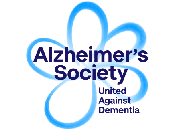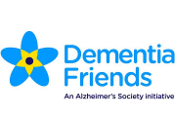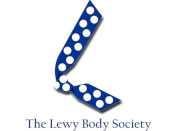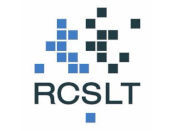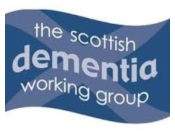
Living with dementia: eating and drinking
Living with dementia: eating and drinking
This factsheet is available for sponsorship, email marketing@dlf.org.uk
Sponsorship has no influence on our impartial content
Factsheet contents
- Introduction
- Plates and bowls
- Mugs, cups and glasses
- Cutlery
- Clothing protectors
- Trays, tables, trolleys and mats
- Accessing your needs
- Provision of equipment
- Funding sources for care
- For further advice from us
- Contributors
- Useful organisations and resources
- References and further reading
Introduction
Dementia can have an impact on your ability to carry out everyday tasks, but with the correct support it is possible to live well with this condition. Keeping the focus on what you can achieve helps towards improving self-confidence and well-being.
If you are living with dementia it is particularly important to continue eat and drink well, as not doing so can have a negative effect on your physical and mental health. Making some changes can help in your aim to be a independent as possible - these changes can involve using equipment that is dementia friendly.
Every person with dementia is an individual and it is important to have this in mind when thinking about what will be useful.
There are many factors that can impact on a person's ability to eat and drink when they have dementia.
Difficulties with eating and drinking
It is essential to seek specialist advice about any difficulties with eating and drinking from your GP, Registered Nurse or Speech and Language Therapist.
- As dementia progresses, some people may develop swallowing problems. This is due to the fact that the part of the brain which controls swallowing is no longer working properly. (Social Care Institute for Excellence, 2015). Advice from the speech and language therapist is important at this stage, as thickened fluids and a pureed diet may be required. Loss of appetite is often also a feature of the natural progression of dementia (Gallagher. R, 2011).
- Losing sense of time (NHS, 2018) and so forgetting about mealtimes, can cause a breakdown of meal routines for some people with dementia, as well as difficulty connecting feelings of hunger with eating. (Guys and St Thomas NHS Foundation Trust, 2017). Consultation with a dietitian would be recommended to address any resulting weight loss as they can provide advice on supplementary products which can alleviate this problem.
- Additional eating and drinking difficulties can be caused by issues with co-ordination and concentration due to dementia. This can impact on a person's ability to use cutlery and drinking utensils to eat and drink by themselves (NHS, 2018).
Plates and bowls
Coloured plates and bowls
 Some people with dementia can experience changes in their ability to be able to pick out an object from its background. This is known as figure-ground discrimination (The Good Care Group. 2018). When choosing a plate or bowl it is helpful to opt for a strong plain primary colour that contrasts with the table and the food, as it makes the crockery and the food easier to see.
Some people with dementia can experience changes in their ability to be able to pick out an object from its background. This is known as figure-ground discrimination (The Good Care Group. 2018). When choosing a plate or bowl it is helpful to opt for a strong plain primary colour that contrasts with the table and the food, as it makes the crockery and the food easier to see.
High-sided bowls and plates
 If you prefer to eat using either a spoon or a fork, you may find that food spills off the crockery and onto the table. High-sided bowls and plates have one side higher than the other, enabling you to push food up onto the higher edge, onto the cutlery and out of the plate or bowl. They are available in several different colours and sizes. There are also options that stick onto the table with a suction base - this can be useful as it helps ensure the crockery stays in place on the table.
If you prefer to eat using either a spoon or a fork, you may find that food spills off the crockery and onto the table. High-sided bowls and plates have one side higher than the other, enabling you to push food up onto the higher edge, onto the cutlery and out of the plate or bowl. They are available in several different colours and sizes. There are also options that stick onto the table with a suction base - this can be useful as it helps ensure the crockery stays in place on the table.
Plateguard
 A plateguard or plate surround clips around approximately two thirds of the plate. It helps to ensure food does not fall off the plate and provides a surface to use to push food onto cutlery. The surrounds are removable and can be fitted on many types and sizes of plate. They are also available in several different colours.
A plateguard or plate surround clips around approximately two thirds of the plate. It helps to ensure food does not fall off the plate and provides a surface to use to push food onto cutlery. The surrounds are removable and can be fitted on many types and sizes of plate. They are also available in several different colours.
Plates with a raised rim
Rather than adapt existing crockery, you may wish to use plates that are specifically designed. In this instance plates with integrated raised rims could be useful. These are available in several different colours and designs.
Insulated bowl
 It may take a little longer to eat at mealtimes and consequently food may become unappetising. Insulated bowls keep food hot or cold for longer. These are available in a variety of colours and some have the addition of a lid.
It may take a little longer to eat at mealtimes and consequently food may become unappetising. Insulated bowls keep food hot or cold for longer. These are available in a variety of colours and some have the addition of a lid.
Mugs, cups and glasses
China mug or cup
When choosing a mug or cup it is important to be able to hold it securely. If you find you are not as dextrous as you once were, wide handles can be more comfortable. A mug or cup that is not heavy or large will be easier to lift. Also opting for a bright colour that contrasts with the table can attract attention and be a reminder to take a drink.
Light plastic mugs
China mugs may be too heavy to lift. Plastic mugs are lighter and therefore easier to lift.
Two handled mug or cup
 You may find that when you lift a mug your hands shake. A mug or cup with two handles offers a more secure grip that is useful when raising and lowering the cup to drink.
You may find that when you lift a mug your hands shake. A mug or cup with two handles offers a more secure grip that is useful when raising and lowering the cup to drink.
Cup and mug handle
An additional plastic handle can be placed around favourite cups or mugs to provide extra assistance to hold the cup safely.
Anti–spill mug
 The design of the mug ensures that it can sit on the table - if it is knocked into, it will not fall over. This may be important if you have difficulty with coordination and judging distances. The base of the mug uses suction but despite this it is still easily released from surfaces.
The design of the mug ensures that it can sit on the table - if it is knocked into, it will not fall over. This may be important if you have difficulty with coordination and judging distances. The base of the mug uses suction but despite this it is still easily released from surfaces.
Insulated mugs
If drinking takes a long time insulated mugs can be used to keep drinks hot or cold for longer.
Glass tumblers with textured outing
 Glasses with a textured outside can help provide extra grip and be easier to hold. Coloured glasses are also an advantage as they can be seen more clearly.
Glasses with a textured outside can help provide extra grip and be easier to hold. Coloured glasses are also an advantage as they can be seen more clearly.
Plastic glasses
Plastic glasses will not break if they are dropped and are also lighter than traditional glass. Coloured glasses may be easier to see and some designs have handles that can help ensure you have a secure grasp.
Straw holder
Some people with dementia may experience difficulty swallowing liquid and may find using a straw for drinking easier (Veiga Fonseca Biancini, 2014). When you drink with a straw you may find it moves around the glass. A straw holder grips onto the straw and holds it in place by the side of the glass, therefore making it simpler to take a drink.
One-way straws
A one-way straw is designed with a valve that prevents the drink from dropping back down the straw between sips; this can be helpful as it reduces the effort required to drink.
Lids for mugs
Many mugs can be adapted with lids. Spout lids are variable in design and the number and the size of the holes adjust the liquid flow. Sipping lids have one hole in the lid that you can drink through. Some lids have a hole for a straw.
Mugs and tumblers with light and sound
Becoming dehydrated due to forgetting to drink can be an issue for some people living with dementia (Alzheimers UK, 2018). If a person requires some prompting to take a drink, it is not always possible for somebody to be present to remind them. An automatic reminder could be useful in this case.
'Hydration systems' consist of an adapted base that fits onto a specifically designed mug or tumbler and it is set at specific times to light up and speak a recorded audio message as a reminder to take a drink.
The setting up of the base may need to be carried out by a friend or family member and the user of the system needs to be willing and able to respond to the reminder. For some people the sound of a voice and lights coming from the mug could be a disconcerting experience and therefore it is important to consider carefully whether this system is suitable.
Drinking reminder
The drinking reminder fits around a glass or water bottle. It will blink every 30 to 40 minutes as a prompt to take a drink.
Cutlery
Coloured cutlery
If it is difficult to distinguish items from the background colour, then cutlery with coloured handles, or cutlery that is all in one colour, can help create a colour contrast making it easier to distinguish it from the table.
 The following items of cutlery relate more specifically to physical difficulties with using cutlery rather than difficulties due to dementia, although older people are more likely to have other conditions like arthritis, stroke or Parkinson's etc. Considerations should be made when changing cutlery - for example it may be difficult perceptually for people with dementia to use angled or bendable cutlery as it may look less familiar to them and therefore cause confusion.
The following items of cutlery relate more specifically to physical difficulties with using cutlery rather than difficulties due to dementia, although older people are more likely to have other conditions like arthritis, stroke or Parkinson's etc. Considerations should be made when changing cutlery - for example it may be difficult perceptually for people with dementia to use angled or bendable cutlery as it may look less familiar to them and therefore cause confusion.
Lightweight cutlery
Standard cutlery may be too heavy to use, lightweight cutlery is an alternative option.
Angled cutlery
It can be awkward turning a piece of cutlery to place it to your mouth. Angled cutlery is designed with a turn that decreases the need for this. The handles are also wide and can be easier to hold.
Bendable cutlery
Spoons and forks can be shaped to suit individual requirements and this may assist with being able to eat independently. The handles are wide with a suitable grip.
Tubing
Tubing can be cut to size and placed on cutlery handles to make them wider and provide a more comfortable grip.
Cutlery with large handles
The handles on standard cutlery can be narrow and difficult to hold. Cutlery with large handles may be an advantage if grip is limited.
Clothing protectors
 Dementia can cause concentration and co-ordination problems - this may make it difficult for some people to avoid spilling their food.
Dementia can cause concentration and co-ordination problems - this may make it difficult for some people to avoid spilling their food.
Where possible it is important to seek a wearer's opinion on what kind of clothing protection they would like and to ensure their preferences are taken into consideration. Some people may not wish to wear bib style products.
Avoiding food which easily spills and offering finger type foods may be an alternative depending the person’s preference.
When choosing clothing protectors it's preferable to use products which are as age appropriate as possible, such as serviettes or napkins (Social Care Institute for Health. 2018). However, as dementia progresses it may be necessary to use a greater level of clothing protectors such as a tabard or bib.
Napkin with poppers at the back
These have the addition of a short strap with poppers that can be fitted around the neck to ensure it stays in place.
Bandana
This is similar in appearance to a standard bandana and is worn around the neck to catch any spills. The outer layer is cotton and the inner layer is fleece to absorb any spills. This is for comfort and to keep clothes protected and dry.
Pashmina
Outwardly this is similar in appearance to a standard pashmina and is worn around the neck to catch any spills. However it has the advantage of being absorbent and waterproof thus protecting clothes.
Tabard
The tabard is placed over the head and tied at the sides with poppers. It covers the lap when you are sitting down, which is helpful to catch any spills. Tabards can be wipe clean or are washable.
Bib
 Traditional style bibs are available in adult sizes. These can be wipe clean or washable. Disposable bibs are also available.
Traditional style bibs are available in adult sizes. These can be wipe clean or washable. Disposable bibs are also available.
Paper/disposable bibs
Disposable clothes protectors are available as aprons or bibs. They can also be self-adhesive and stick to clothing.
Trays, tables, trolleys and mats
Beanbag tray
 A beanbag tray moulds around your knees and provides a flat surface from which to eat meals. The beanbag also helps make the tray higher so less bending is required. Beanbag trays can also have integral non-slip mats.
A beanbag tray moulds around your knees and provides a flat surface from which to eat meals. The beanbag also helps make the tray higher so less bending is required. Beanbag trays can also have integral non-slip mats.
Over chair table
An over chair table can be placed over the chair where you are sitting and provide a stable surface from which to eat your meals.
Trolley
 To carry food from the kitchen to elsewhere in the house, a household trolley can be helpful. Trolleys of this type have two shelves and a frame which is pre-set or adjusted to suit your height. The trolley is designed to be pushed along.. It can also be positioned in front as a table from which to eat your meal.
To carry food from the kitchen to elsewhere in the house, a household trolley can be helpful. Trolleys of this type have two shelves and a frame which is pre-set or adjusted to suit your height. The trolley is designed to be pushed along.. It can also be positioned in front as a table from which to eat your meal.
NB - trolleys are not walking aids - an Occupational Therapist or Physiotherapist can advise on whether a trolley is suitable for your needs.
Non-slip mats
Non-slip mats can be useful to stabilise crockery so that it does not move around on the table. Mats are available in various colours and shapes and can be wiped clean. This non-slip material is also available in a roll that can be cut to size. Some mats include images of cutlery, these are designed to help encourage people with dementia to continue to lay the table.
Assessing your needs
A range of conditions may cause forgetfulness, anxiety, low mood and confusion, however they may also be early signs of dementia. A visit to your GP would be recommended to rule out other causes and allow for a better understanding of the illness and how it may progress, as well as strategies on how to manage the symptoms.
The assessment for dementia is a process that takes time and goes through various stages and tests. These may include a physical examination, a blood test and interviewing both the person and their concerned friend/relative separately. This may lead to a referral to a local memory service or clinic. The GP, Community Psychiatric Nurse or a member of the memory clinic staff will be able to advise on symptoms, how the disease may develop and provide information on appropriate treatment. They will also be able to advise you on what support there is available locally. Prior to an appointment it can be useful to keep a journal or diary of any tasks that have become more difficult or concerns that you may have.
The GP can refer you for a Health and Social Care Needs Assessment, or you can contact your local authority Adult Social Care Department and make a self-referral, or have a friend or relative do it for you. By law anyone who appears to need care and support can request an assessment regardless of their income or savings.
The assessment will focus on your needs, how they impact on your well-being and on what you want to achieve and will aim to identify any difficulties you may have in caring for yourself. An Occupational Therapist will carry out the assessment and will be able to advise on strategies to help reduce any identified risks and recommend any equipment that may be helpful to maintain independence. If someone else is helping you they are also entitled to a carers assessment, which will help to identify what help and support they may need.
There are a number of charitable organisations listed below that can provide help and support for the person with dementia and their relatives and carers.
Provision of equipment
Many simple assistive technology devices mentioned in this fact sheet can be privately purchased. Others can be provided by local authorities or the NHS to meet an assessed need; you or a family member can request a home assessment from an occupational therapist
Permanent loan: Local Authority and health provision
If you require disability equipment, telecare or adaptations to your home then your local authority may be able to help. They can supply equipment or minor adaptations that cost under £1,000, free of charge. (Department of Health 2014, section 2.9). In Scotland, Local Authorities make their own arrangements for provision of minor adaptations and details can be accessed via your Council's website.
Some equipment such as pressure relieving cushions, mattresses, some mobility aids and wheelchairs are supplied by your local Health Authority. A referral to the District Nurse or Wheelchair Service for these items can be made via your GP or other health professionals including a Community Occupational Therapist or Physiotherapist.
Disabled Facilities Grant (DFG)
Should you need adaptations to your home that cost more than £1,000 that will allow you to continue to live there, you may be eligible for a Disabled Facilities Grant (DFG). An Occupational Therapist will complete an assessment and if the work is deemed necessary to meet your needs and is reasonable and practical, then they will arrange for a financial assessment to be undertaken.
If you meet the criteria for funding, the Occupational Therapist will make recommendations for the adaptations required.
Private purchase
If you do not wish to use local authority services, there are independent Occupational Therapists who can assess your needs and help to advise or assist you in buying any equipment or arrange adaptations to your home that you may require.
You can also purchase equipment privately, but it is recommended that you compare different options first. There may be an equipment demonstration centre near you where you can look at and try out equipment before purchasing, as well as receiving impartial advice.
Charity and Grant funding
Charitable trusts may sometimes provide equipment or give a grant for equipment purchase.
Turn2Us is a national charity that helps people who are in financial difficulty find grants for the provision of equipment, and Community Care gives a list of charitable organisations that give grants.
Charities tend to give awards in accordance with a predetermined criterion, so it is important that you carefully select the organisations that apply to your condition. There are also some workplace charities that will provide support for ex-employees. If you are or have served in the Armed Forces, or are a dependent or carer of a person who has served, The Royal British Legion may be able to provide you with support for specialist dementia care or grants for equipment and adaptations to your home, or small crisis grants to meet unexpected expenses.
Funding sources for care
If you need support with daily tasks that may include help from a carer, the delivery of meals or residential care then your local authority may help with the cost. How much support you are entitled to will depend on your income and savings and what your care needs are. A financial assessment of your means will be carried out to establish how much support you are entitled to.
You may be eligible for further financial support such as Attendance Allowance or Personal Independence Payment (PIP) and if you have a person who cares for you for 20 hours or more a week, they may be eligible for some financial support.
If you live alone you can apply to your local authority for a 25% reduction on your Council Tax bill, or if you live with someone else then they may be eligible for a 25% reduction on the Council Tax bill. As your condition progresses, they may be eligible for a further 25% reduction.
Private carers and residential care
If you are looking for a carer or are considering residential care, then you should ensure that the staff are trained in dementia care and are able to give the specialist help you need. A residential home should be designed to provide the best possible environment for you. There are a number of organisations that can help you with choosing a suitable home, including:
- Elderly Accommodation Council
- Housing Care.org
- DementiaUK
- Relatives and Residents Association
- Paying for Care
Care Home ratings/selector
Inspection reports and care home ratings can be found via:
- England – Care Quality Commission
- Scotland – Care Inspectorate
- Wales – Care Inspectorate Wales
- Northern Ireland – Regulation and Quality Improvement Authority
Charity and Grant funding
Charitable trusts may sometimes provide funding for care, nursing or residential respite, permanent care or a befriending service. Charities tend to give awards in accordance with a predetermined criterion, so it is important that you carefully select the organisations that apply to your condition. There are also some workplace charities that will provide support for ex-employees. If you are or have served in the Armed Forces, or are a dependent or carer of a person who has served, The Royal British Legion may be able to provide you with support for specialist dementia care or small crisis grants to meet unexpected expenses.
Further information relating to grants is available from:
- Community Care – a list of charities providing grants.
- Turn2us - Turn2us is a national charity that helps people in financial hardship gain access to welfare benefits, charitable grants and support services.
- Housing grants information from Disability Rights UK - led by people with diverse experiences of disability and health conditions, from different communities.
- Disability Grants - grants for disabled adults.
- My grants - accessibility grants for disabled and older people.
- Grants for individuals - this website is run by the Directory of Social Change and lets subscribers search for grants. It is intended for organisations searching for funding on behalf of individuals.
- The Money Advice Service - Charitable grants and major and minor adaptations.
VAT relief
If you have a diagnosed long-term condition, you may be able to claim VAT relief on purchases relating to the condition. The company supplying the equipment should be able to advise you, or there is general information on VAT relief on the GOV.UK website.
For further advice from us
For clear, practical advice and information on products and suppliers of daily living equipment, please have a look at our Living made easy website.
If you would like further advice related to choosing equipment for everyday living you could try relevant sections of AskSARA, our free online guided advice tool. AskSARA will ask you questions about yourself and your environment and then offer relevant advice, product suggestions and supplier details.
You can contact the DLF Helpline, which is open Monday to Friday from 10am to 4pm. Tel: 0300 999 0004 (calls charged at your standard land line rate even if you are phoning from a mobile).
Alternatively, you may wish to contact us via email: info@dlf.org.uk or by letter: DLF, 34 Chatfield Road, Wandsworth, London SW11 3SE.
To help us give you a concise and informative reply, please provide us with as much detail as possible, including information on the difficulties you are having and any solutions you have considered, such as equipment ideas.
Another source of advice is a disabled or independent living centre where you would have the opportunity to try out a range of equipment. There are several of these around the country where you can go for impartial advice. Your local authority will also be able to give you details of centres in your area.
Contributors
Janet Corbett
 Janet Corbett is an occupational therapist with many years’ experience in supporting people with dementia along with their families and friends. She has a particular interest in helping people to develop techniques to compensate for memory impairment. Janet also holds dementia friendly exercise classes for older people in the local community. Janet has a BSc in Occupational Therapy from Queen Margaret University and an MSc in Dementia Studies from the University of Stirling.
Janet Corbett is an occupational therapist with many years’ experience in supporting people with dementia along with their families and friends. She has a particular interest in helping people to develop techniques to compensate for memory impairment. Janet also holds dementia friendly exercise classes for older people in the local community. Janet has a BSc in Occupational Therapy from Queen Margaret University and an MSc in Dementia Studies from the University of Stirling.
Roisin Hodgson
 Roisin Hodgson qualified as an occupational therapist in 1993 and has worked extensively in hospitals and within the community. Now working as a private occupational therapist, Roisin has an interest in occupational therapy approaches to anxiety, panic and post traumatic stress disorder. Many of Roisin's clients have dementia; she works with them and their families advising on a range of solutions to help maintain independence, including home adaptations, daily living aids and telecare.
Roisin Hodgson qualified as an occupational therapist in 1993 and has worked extensively in hospitals and within the community. Now working as a private occupational therapist, Roisin has an interest in occupational therapy approaches to anxiety, panic and post traumatic stress disorder. Many of Roisin's clients have dementia; she works with them and their families advising on a range of solutions to help maintain independence, including home adaptations, daily living aids and telecare.
Nina Evans
 Nina Evans works alongside the design team at Designability. Working in partnership with users, carers and professionals, Nina carries out clinical trials with end-users, developing and promoting assistive technology to improve quality of life. Nina's qualifications include a Diploma of the College of Occupational Therapists and an MSc in Clinical Research.
Nina Evans works alongside the design team at Designability. Working in partnership with users, carers and professionals, Nina carries out clinical trials with end-users, developing and promoting assistive technology to improve quality of life. Nina's qualifications include a Diploma of the College of Occupational Therapists and an MSc in Clinical Research.
Useful organisations and resources
Age UK Advice is a free, confidential, national phone service for older people, their families, friends, carers and professionals. Their team of experts can provide advice and information on a number of topics including benefits, concerns about hospital stays, advice choosing care homes etc. The website can signpost you to local services including home helps, foot care, handy person services and dementia support.
The Age UK network includes Age Scotland, Age Cymru and Age NI.
Alzheimer's Society's website provides advice and support regarding all aspects of dementia – including the different types of dementia, symptoms, diagnosis and treatments available. They also run Dementia Connect, a comprehensive services directory for people affected by dementia - areas cover England, Wales and Northern Ireland.
.
Website: www.alzscot.org
24 hour Dementia Helpline: 0808 808 3000
Alzheimer Scotland provides a wide range of specialist services for people with dementia and their carers. They offer personalised support services, community activities, information and advice at every stage of the dementia journey.
Disabled Living
Burrows House, 10 Priestley Road
Wardley Industrial Estate, Worsley
Manchester, M28 2LY
Website: www.bbuk.org.uk
Telephone: 0161 607 8219
Email: bbuk@disabledliving.co.uk
Bowel and Bladder UK's National Confidential Helpline is managed by a team of Specialist Nurses and Continence Product information staff, who can be contacted for advice on specialist services, product information and general advice to help treat or manage bladder and bowel problems that may occur as a symptom of Dementia. Opening hours Monday to Friday 9am–4.30pm.
5th Floor, Charles House
148/9 Great Charles Street Queensway
Birmingham, B3 3HT
Website: www.bda.uk.com
Telephone: 0121 200 8080
The BDA is the only body in the UK representing the whole of the dietetic workforce. It is a trade union and professional body representing the professional, educational, public and workplace interests of its members.
Head Office
20 Great Dover Street
London SE1 4LX
Website: www.carersuk.org
Telephone: 020 7378 4999
Carers UK provide advice and support for all carers, whether they are new to looking after someone or have been a carer for a long time. Their telephone advice and support service is available if you wish to talk to someone about caring, with further information and advice available on the website. The website also provides contact details for Carers Wales, Scotland and Northern Ireland.
Carewatch Care Services Ltd
Libra House, Sunrise Parkway
Linford Wood
Milton Keynes MK14 6PH
Website: www.carewatch.co.uk
Telephone: 01908 557 950
Carewatch provide home care services throughout the UK, designed to enable people to remain as independent as possible within their own home. They offer multiple services including home visits, personal care, practical help, live-in care and dementia care at home and long term home care.
Dementia Friends provides information, support and learning for those who have a relative or know someone with dementia. Anyone of any age can be a dementia friend. Visit their website for more details.
Second Floor
356 Holloway Road
London N7 6PA
Website: www.dementiauk.org
Telephone: 020 7697 4160
Support line: 0800 888 6678
Dementia UK provide specialist dementia support for families through their Admiral Nurse service. The Admiral Nurses work with families giving one-to-one support, expert guidance and practical solutions.
Unity House
Westwood Park
Wigan, WN3 4HE
Website: www.lewybody.org
Telephone: 01942 914000
Support line: 0800 888 6678
Email: info@lewybody.org
The Lewy Body Society funds research into Dementia with Lewy Bodies (DLB). It's mission is to raise awareness of DLB among the general public and those in the medical profession and decision making positions, They also provide information resources for patients and carers.
Website: www.nhs.uk
NHS Choices provides comprehensive information on the help and support available for people living with dementia. Other NHS websites include: NHS Inform (Scotland), Health and Social Care online (N.I.) and NHS Direct Wales.
Website: www.nhs.uk
The Patient Advice and Liaison Service from the NHS offers confidential advice, support and information on health-related matters. They provide a point of contact for patients, their families and their carers when using NHS services. Your local PALS service can be located using the search facility on their website.
Website: www.nice.org.uk
NICE provides national guidance and advice to improve health and social care.
The RICE Centre
Royal United Hospital
Combe Park
Bath, BA1 3NG
Website: www.rice.org.uk
Telephone: 01225 476420
Email: info@rice.org.uk
RICE is a registered charity committed to undertaking and publishing effective research aimed at improving the diagnosis, assessment and treatment of people with Alzheimer’s disease and other forms of dementia. The charity also offers several healthcare services for people living with dementia including a memory clinic.
106-114 Borough High Street
Southwark
London SE1 1LB
Website: www.rcot.co.uk
Telephone: 020 7357 6480
Email: reception@rcot.co.uk
The Royal College of Occupational Therapists is the professional membership body for occupational therapy staff in the UK. Their website includes information on how to find an independent occupational therapist through their online directory.
2 White Hart Yard
London SE1 1NX
Website: www.rcslt.org
Telephone: 020 7378 1200
The RCSLT is the professional body for speech and language therapists in the UK providing leadership and setting professional standards.
81 Oxford Street
Glasgow, G5 9EP
Website: www.sdwg.org.uk
Telephone: 0141 410 1171
Email: sdwg@alzscot.org
Funded by Alzheimer Scotland and the Scottish Government SDWG is an independent group run by people with dementia, their families and carers, which campaigns on behalf of, and provides a voice for, people living with dementia in Scotland.
Watson House
54 Baker Street
London W1U 7EX
Website: www.scie.org.uk
Telephone: 020 7766 7400
Email: info@scie.org.uk
The Social Care Institute for Excellence (SCIE) improves the lives of people who use care services by sharing knowledge about what works. It is a leading improvement support agency and an independent charity working with adults’, families’ and children's care and support services across the UK. The website contains a library of resources and services on wide range of topics, including dementia.
SFE Administrator
Studio 209, Mill Studio Business Centre
Crane Mead
Ware
Hertfordshire, SG12 9PY
Website: www.sfe.legal
Telephone: 0844 567 6173
Email: sfe@standagency.com
Solicitors for the Elderly provide a service to help you locate a local solicitor, near you, to help you with wills, power of attorney, trusts, probate, paying for care and other legal needs. They are a national organisation across the UK and the Republic of Ireland
Wimslow House
Water Lane
Grove Way
Wimslow, SK9 5AG
Website: www.tsa-voice.org.uk
Telephone: 01625 520320
Email: admin@TSA-Voice.org.uk
The website has information on the telecare industry and the services it provides to individuals. The TSA aims to promote and support the telecare industry and highlight the benefits of telecare for service users, their friends, family and carers.
Released January 2019, to be reviewed by January 2022, Version 1
References and further reading Show references
Alzheimer's Society (no date): Eating and drinking. Available from www.alzheimers.org.uk/get-support/daily-living/eating-drinking (Accessed 18th July 2018).
British Dietetic Association (no date) Dietitian Key Facts Dementia. Available from: www.bda.uk.com/improvinghealth/healthprofessionals/keyfacts/dementia_kf_sheet (Accessed: 24th June 2018).
College of Occupational Therapists (no date) Occupational Therapy Evidence Fact Sheet Occupational Therapists help those with dementia and their carers. Available from: www.rcot.co.uk/file/66
Dementia UK (no date) Eating and drinking for a person with dementia. Available from: www.dementiauk.org/understanding-dementia/advice-and-information/maintaining-health-in-dementia/eating-and-drinking (Accessed 18th July 2018).
NHS 2017 Symptoms Vascular dementia. Available from: www.nhs.uk/conditions/vascular-dementia/symptoms
NHS 2017 Symptoms Alzheimer's disease. Available from: www.nhs.uk/conditions/alzheimers-disease/symptoms
NHS Dumfries and Galloway (2012) Communication and Mealtimes Toolkit. Available from: www.nhsdg.scot.nhs.uk (Accessed 18th July 2018).
Social Care Institute for Excellence: Dementia - Eating and drinking at the end of life. Available from www.scie.org.uk/dementia/advanced-dementia-and-end-of-life-care/end-of-life-care/eating-drinking.asp
Social Care Institute for Excellence: Promoting independence at mealtimes for people with dementia. Available from https://www.scie.org.uk/dementia/living-with-dementia/eating-well/independence-at-mealtimes.asp
Andersen, C.K., Wittrup-Jensen, K., Lolk, A., Andersen, K. & Kragh-Sørensen, P. 2004. Ability to perform activities of daily living is the main factor affecting quality of life in patients with dementia Health And Quality Of Life Outcomes, vol. 2, pp. 52-52.
Ball, L., Jansen, S., Desbrow, B., Morgan, K., Moyle, W. & Hughes, R. 2015, Experiences and nutrition support strategies in dementia care: Lessons from family carers Nutrition & Dietetics, vol. 72, no. 1, pp. 22-29.<.p>
Barnes, S., Wasielewska, A., Raiswell, C. & Drummond, B. 2013. Exploring the mealtime experience in residential care settings for older people: An observational study Health & Social Care in the Community, vol. 21, no. 4, pp. 442-450.
Beattie, E.R.A., Algase, D.L. & Song, J. 2004. Keeping wandering nursing home residents at the table: Improving food intake using a behavioral communication intervention. Aging & Mental Health, vol. 8, no. 2, pp. 109-116.
Best, C. & Summers, J. 2010. Strategies for nutritional care in acute settings. Nursing Older People, vol. 22, no. 6, pp. 27-31.
Best, C. & Evans, L. 2013. Acute care, nutritional assessment, nutritional care, undernutrition. Nursing Older People, vol. 25, no. 3, pp. 30-37.
Brook, S. 2014, Nutrition and dementia: what can we do to help? British journal of community nursing, pp. S24-7.
Cole, D. 2012. Optimising nutrition for older people with dementia. Nursing Standard, vol. 26, no. 20, pp. 41-48.
Dark, J. & Sander, R. 2014. Dysphagia: helping vulnerable people to eat and drink. Nursing & Residential Care, vol. 16, no. 8, pp. 438-441.
Dunne, A,.2010. Nutrition and dementia. Nursing & Residential Care, vol. 12, no. 3, pp. 112-116.
Frazer, S., M., Oyebode, J., R. & Cleary, A. 2012, How older women who live alone with dementia make sense of their experiences: An interpretative phenomenological analysis. Dementia (14713012), vol. 11, no. 5, pp. 677-693.
Gallagher, R. MD CCFP. Swallowing difficulties, A prognostic signpost. 2011 Dec; 57(12): 1407–1409
Hallpike, B. 2008. Promoting good nutrition in patients with dementia Nursing Standard, vol. 22, no. 29, pp. 37-48.
Hargreaves, T. 2008. Nutritional issues for people with dementia Nursing & Residential Care, vol. 10, no. 3, pp. 118-122.
Heaven, B., Bamford, C., May, C. & Moynihan, P. 2013. Food work and feeding assistance on hospital wards Sociology of health & illness, vol. 35, no. 4, pp. 628-642.
Holmes, S. 2008. Nutrition and eating difficulties in hospitalised older adults Nursing Standard, vol. 22, no. 26, pp. 47-60.
Jansen, S., Ball, L., Desbrow, B., Morgan, K., Moyle, W. & Hughes, R. 2015. Nutrition and dementia care: Informing dietetic practice. Nutrition & Dietetics, vol. 72, no. 1, pp. 36-46.
Johansson, L., Christensson, L. & Sidenvall, B. 2011. Managing mealtime tasks: told by persons with dementia Journal of Clinical Nursing, vol. 20, no. 17-18, pp. 2552-2562.
Johnson, R., Taylor, C., Watson, R. & Huei-chuan Sung 2011. Can playing pre-recorded music at mealtimes reduce the symptoms of agitation for people with dementia?...including commentary by Watson R and Sung HC. International Journal of Therapy & Rehabilitation, vol. 18, no. 12, pp. 700-708.
Kingston, T. 2017. Promoting fluid intake for patients with dementia or visual impairments. British Journal of Nursing, vol. 26, no. 2, pp. 98-99.
Kyle, G. 2011. Managing dysphagia in older people with dementia British journal of community nursing, vol. 16, no. 1, pp. 6-10.
Liu, W., Galik, E., Boltz, M., Nahm, E. & Resnick, B. 2015. Optimizing eating performance for older adults with dementia living in long-term care: A systematic review. Worldviews on Evidence-Based Nursing, vol. 12, no. 4, pp. 228-235.
Morris, H. 2006. Dysphagia in the elderly -- a management challenge for nurses. British Journal of Nursing, vol. 15, no. 10, pp. 558-562.
ÖÖhman, A., Nygåård, L. & Kottorp, A. 2011. Occupational performance and awareness of disability in mild cognitive impairment or dementia. Scandinavian Journal of Occupational Therapy, vol. 18, no. 2, pp. 133-142.
Ragdale, S. 2014. Dementia and its relationship with food British journal of community nursing, , pp. S21-5.
Rosenberg, L., Kottorp, A., Winblad, B. & Nygård, L. 2009. Perceived difficulty in everyday technology use among older adults with or without cognitive deficits. Scandinavian Journal of Occupational Therapy, vol. 16, no. 4, pp. 216-226.
Salamone, G., Di Lorenzo, C., Mosti, S., Lupo, F., Cravello, L., Palmer, K., Musicco, M. & Caltagirone, C. 2009. Color discrimination performance in patients with Alzheimer's disease. Dementia & Geriatric Cognitive Disorders, vol. 27, no. 6, pp. 501-507.
Shepherd, A. 2010. The hand in hand nature of nutrition and cognitive decline Nursing & Residential Care, vol. 12, no. 8, pp. 370-374.
Shinagawa, S., Honda, K., Kashibayashi, T., Shigenobu, K., Nakayama, K. & Ikeda, M. 2016. Classifying eating-related problems among institutionalized people with dementia. Psychiatry and clinical neurosciences, vol. 70, no. 4, pp. 175-181.
Starkhammar, S. & Nygård, L. 2008. Using a timer device for the stove: experiences of older adults with memory impairment or dementia and their families. Technology & Disability, vol. 20, no. 3, pp. 179-191.
Swann, J.I. 2011. Practical care: how to enhance mealtime setups. Nursing & Residential Care, vol. 13, no. 9, pp. 446-447.
TABAR, P. 2016. Dementia-friendly dining. Long-Term Living: For the Continuing Care Professional, vol. 65, no. 4, pp. 26-28.
Warriner, L., Gooch, S. & Harkess, S. 2016. Nutrition and Hydration Week: one trust's recipe for success British Journal of Nursing, vol. 25, no. 5, pp. 270-270.
Williams, K. & Weatherhead, I. 2013. Improving nutrition and care for people with dementia. British journal of community nursing, , pp. S20-5.
Wong, F., Keller, H.H., Martin, L.S. & Sutherland, O. 2015. A recipe for mealtime resilience for families living with dementia. Scandinavian Journal of Caring Sciences, vol. 29, no. 3, pp. 486-494.
Veiga HP1, Fonseca HV, Bianchini EM. Dysphagia - Sequential swallowing of liquid in elderly adults: cup or straw? 2014 Apr;29(2):249-55.
AskSARA
If you would like further advice regarding daily living equipment related to choosing equipment for everyday living you could try relevant sections of AskSARA. AskSARA is our free online guided advice tool. AskSARA will ask you questions about yourself and your environment and then offer relevant advice, product suggestions and supplier details.
| Attachment | Size |
|---|---|
| 14.56 KB | |
| 23.12 KB | |
| 22.15 KB | |
| 14.84 KB | |
| 14.14 KB | |
| 6.36 KB | |
| 3.45 KB | |
| 10.6 KB | |
| 9.23 KB | |
| 33 KB | |
| 38.5 KB | |
| 31.83 KB | |
| 14.33 KB | |
| 18.74 KB | |
| 13.37 KB | |
| 24.59 KB | |
| 15.86 KB | |
| 618.2 KB |
All rights reserved. No reproduction or transmission of this publication may be made without written permission. Inclusion (including any sponsorship) does not indicate endorsement or that any item has been recommended or tested. All information is provided without legal responsibility.
Disabled Living Foundation, Tel: 020 7289 6111, Fax: 020 7266 2922, Helpline: 0300 999 0004 10.00am-4.00pm, Email: helpline@dlf.org.uk, Website: www.dlf.org.uk
Reg. Charity No: 290069, VAT Reg. No: 226 9253 54
 (Tell me about the standard)
(Tell me about the standard)

Your personal information is required in order to claim Gift Aid. This information is kept by DLF/Shaw Trust for financial audit purposes. For more information on our privacy policy visit: https://www.dlf.org.uk/content/privacy-policy


